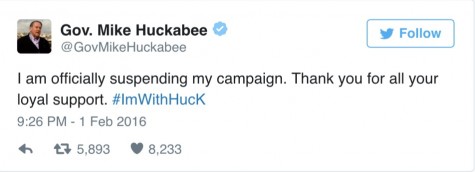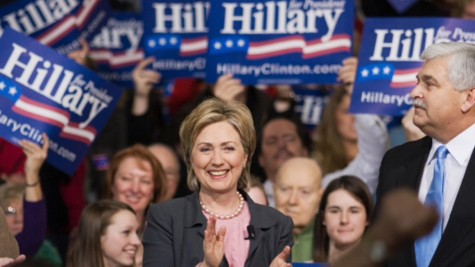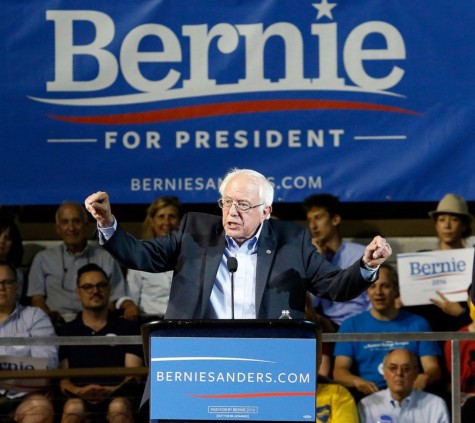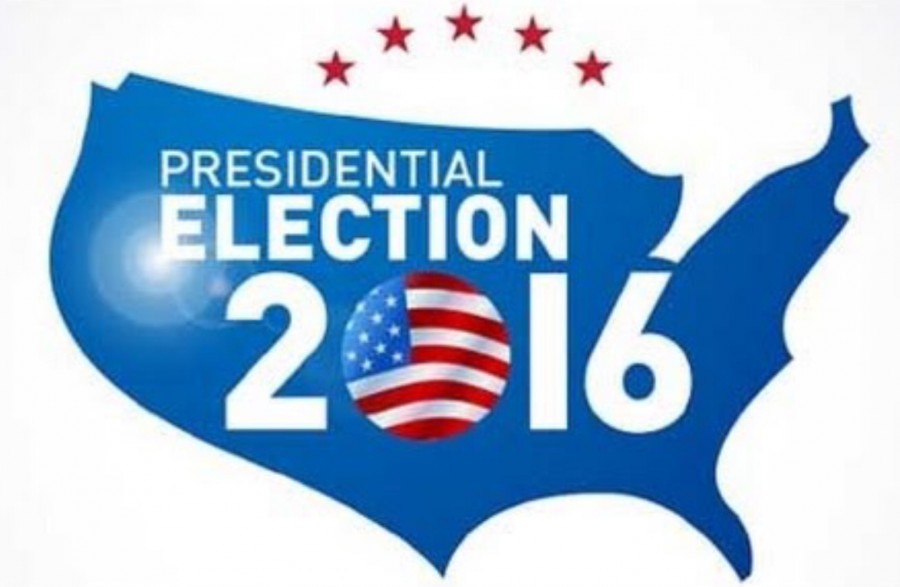Primaries and Caucuses: The Presidential Election’s Progression
With the 2016 Presidential election quickly approaching, it is important for voters to follow televised debates, political platforms and poll results. After months of giving speeches and rallying for supporters, the presidential candidates saw the results of their campaigns in the significant Iowa caucuses and primaries.
The Iowa Caucuses:
Held on February 1, the caucuses are the first time candidates campaign to a single state to see if their messages are well-received by the American people. Voting is restricted to registered political party members. Although caucuses are not relevant to the voting that will take place later in November, they serve to show candidates where they stand, impacting some to drop out of the race. Interestingly, the last two winners of the Republican Iowa caucuses, Mike Huckabee and Rick Santorum, did not receive their party nomination in previous years.
 Results from the Republican Party:
Results from the Republican Party:
Ted Cruz took control of the Republican party popularity with 27.65% of the votes. Donald Trump placed second with 24.31% of the votes, while Marco Rubio fell in third with 23.1%. Causalities of the Republican party included former Arkansas Governor Mike Huckabee, who announced his decision to drop out of the race to followers on Twitter.
Results from the Democratic Party: 
Hillary Clinton slipped past Bernie Sanders for the win with 49.86% of the Democratic votes, Sanders following close behind with 49.57%. Not having the support of the party in comparison to Clinton or Sanders, candidate Martin O’Malley suspended his campaign in his caucus night speech, resulting in placing third with the low score of 0.57%.
Primaries:
Distinct from caucuses, primaries consist of a state-wide vote through secret ballots, with voters casting for their preferred candidates. There are numerous primaries in various states before the actual election.
February 9, New Hampshire: Bernie Sanders (D), Donald Trump (R)
February 20, South Carolina: Donald Trump (R).
Causalities include former Florida Gov. Jeb Bush, who came in fourth place and ended his campaign.
February 27, South Carolina: Hillary Clinton (D).
Another significant upcoming event to look out for is Super Tuesday on March 1, on which 12 states will hold primary elections. For those who will be voting in the upcoming election, follow these events to stay informed and be prepared to elect our next president this November.

Jennifer, a senior at St. Dominic High School, is the student body president, the VP of Ambassadors Club, involved in the Pro-Life Leadership Team,...


